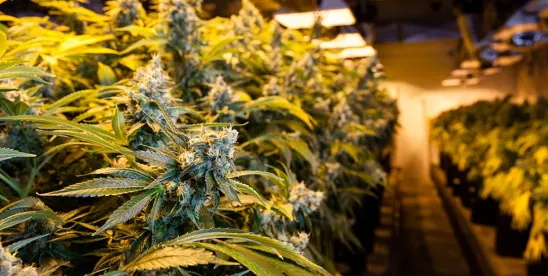Earlier this month, President Trump tapped “physician-turned wellness influencer” Casey Means as his nominee for surgeon general. Means has close ties to Health and Human Services Secretary Robert F. Kennedy Jr., and Trump has touted her “impeccable” Make America Health Again (MAHA) credentials. We’ve written previously on what impact Trump’s second presidency could have on American cannabis and psychedelic policy, but Means’ public statements on cannabis and psychedelics got us pondering on how she may shift the conversation.
We’ll start with the good news for those who are proponents of expanding access to psychedelics. Means has been vocal about her support of psychedelic therapy. In her 2024 book Good Energy: The Surprising Connection Between Metabolism and Limitless Health,Means touted her positive experience with psychedelics. She described her experience and encouraged those that felt so called “to explore intentional, guided psilocybin therapy.” She explained that “[s]trong scientific evidence suggests that this psychedelic therapy can be one of the most meaningful experiences of life for some people” as it had been for her. She states:
If the word psychedelics makes you cringe, I used to be in your position. I spent my childhood and young adult life being extremely judgmental about the use of any type of drug. But I became interested in plant medicine and psychedelics after learning more about their extensive traditional use, analyzing the groundbreaking research… Our brains are profoundly suffering in modern society right now, and I believe that anything that can safely increase neuroplasticity and ground us in more gratitude, awe, connection, and a sense of cosmic safety should be taken very seriously.
She went on to describe her experience on psylocibin as “bask[ing] in the moon’s bright rays… experience[ing] the embodiment of being one with the moon, every star, every atom in the grains of sand I was sitting on, and my mother in an inextricable and unbreakable chain of universal connectedness for which the human concept of ‘death’ was no match.”
She’s also referenced and advocated for the “plant medicine” psilocybin on her blog. In one post she explained that one of the modalities she has gone “deepest in” included “plant medicine (psilocybin).”
But Means’ position on cannabis isn’t as rosy. Means has expressed opposition to marijuana, saying in her book that “people who use cannabis as well as tobacco products should stop these completely” because they will “hurt your mitochondria and vastly diminish your ability to make Good Energy.” She goes on in her book to say:
There has always been suffering in the world, but now we can see exponentially more of it than ever, all at once, on screens we hold in our beds and at the dinner table. In response, modern humans have looked for salvation and coping anywhere we can get a hit of dopamine-fueled ‘pleasure’ and distraction: things like processed sugar, alcohol, soda, refined carbs, vapes, cigarettes, weed, porn, dating apps, email, texts, casual sex, online gambling, video games, Instagram, TikTok, Snapchat, and the relentless novelty of experiences.
She remains critical on her blog as well. It’s not hard to read Means’ statements and assume that anyone using cannabis is doomed to end up like the character in Afroman’s hit 2000’s bop “Because I Got High.”
What this means (pun intended) for proponents of expanded access to cannabis and psychedelics is difficult to say for sure.
As an initial matter, Means still has to be confirmed, and she’s already faced “pushback on multiple fronts.” Means has drawn criticism for not having a current medical license, including from former surgeon generals, as well as questions about whether she should even be eligible to be surgeon general. She’s also received criticism from some in the MAHA camp for not taking a strong enough stance on other issues. In other words, in a political climate where nothing is certain, there is far from any guarantee that Means will be confirmed as the new surgeon general.
If she is confirmed, we think she’ll take the approach we’ve seen many proponents of psychedelics take to advance them as medicine. The political climate is ripe to do so. Bipartisan lawmakers this month asked Trump’s head of the U.S. Department of Veterans Affairs to meet with them “to discuss ways to provide access to psychedelic medicine for military veterans.” At a cabinet meeting, VA Secretary Doug Collins advised Trump that his agency was “opening up the possibility of psychedelic treatment for veterans.” The leader of the MAHA movement, RFK Jr., even discussed the “wonderful experience” he had with LSD when he was younger.
We remain skeptical that even with the confirmation of Means we will see significant psychedelic reform, but we do think it makes it more likely that we would see more science-based reform efforts, focused on scientific and medicinal benefits. We’re less sure about what it may mean for any meaningful cannabis reform. As Marijuana Moment noted on the issue recently, Trump endorsed rescheduling, industry banking access for cannabis businesses, and a Florida legalization ballot initiative, but these issues seem to have taken a backseat for key officials and lawmakers.
So, I guess that brings us back where it all begins. Does Means mean business when it comes to psychedelic or cannabis reform? And even if she does, is there the political interest and will amongst the relevant agencies and Congress to see those changes through? Only time will tell, but we’ll stay on top of it so you don’t have to.






 />i
/>i
